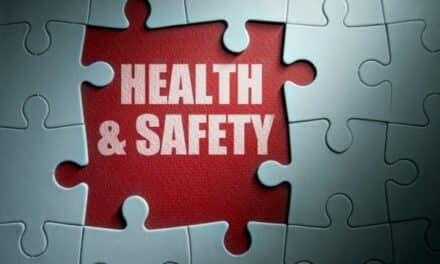24×7 asks about satisfaction and salaries, and finds biomeds happy but wanting more
Biomeds have something to celebrate in addition to the New Year. Even though they may feel overworked, underpaid, and underappreciated, most of the 1,299 respondents to 24×7’s 2006 Annual Compensation Survey are happy—a whopping 91% say they would recommend their profession to others.
“Although more money would be greatly appreciated, I would have to say to find a more interesting career would be difficult. After 30 years in the biomedical field, I still find it to be a great job,” says one CBET in a Palm Beach, Fla, hospital.
A BMET in Warner Robins, Ga, concurs, writing, “I love my job. I think the pay should be better, because [it] is a lot of work. But I will not change my job for anything. I love what I do.”
Biomeds cite the reward of helping others, the challenge of constantly changing technology, and the variety of responsibilities as factors that prevent the job from ever becoming “boring.” A CBET-certified senior BMET in Ohio with more than 16 years of experience notes that the field is “challenging because [it is] always changing, so [it’s] not boring.”
But not everyone is happy. Nine percent of respondents are unhappy enough to steer people away from the field. And even though the majority would encourage others to join the profession, these respondents are still clear about their desire to see more help, more money, and more respect.
“Compared to other health care professionals, we are grossly underpaid,” states a senior BMET in a Tucson, Ariz, hospital who has more than 16 years of experience.
“The issues biomeds faced 30 years ago—recognition, respect, pay, etc—have not seemed to change much. Knowing what I know now, I would have gone into IT,” says a specialist with 16 plus years of experience.
One manager in Iowa with a CBET certification and an associate in applied science (AAS) degree who earns more than $60,000 annually says, “While I like this field, a tech can take the same amount of training and work in the IT field. They would have tremendously more job opportunities and much better pay.”

Another engineer with the same degree and certification who has logged more than 16 years in the field agrees, saying, “I would advise future biomeds to pursue a career in direct patient care, like nursing, x-ray tech, or ultrasound tech. If they decide to pursue a career in the biomed field, my advice would be to focus on networking.”
So Who Earns More?
Respondent salaries ranged from a low of $22,000 to a high of $200,000. To summarize (see graphs for more details): Men earn more than women. Managers, directors, specialists, and radiation technologists earn more than BMETs at any level. Those in the Pacific region generally earn more than their national counterparts. Respondents in manufacturing companies average higher salaries than those in other types of organizations. Those who work in the largest hospitals, with more than 400 beds, tend to earn more than those who work in smaller hospitals. And those who are older, have more experience, or more time with a company typically earn more than counterparts who are younger, less experienced, or new to a company.

The Gender Gap
Biomed is still mainly a man’s world: Similar to last year, when 93% of respondents were men, this year, 94% were men; only 6% were women.
One of the more striking items revealed by the data collected was the difference in salaries for men and women. In addition to being outnumbered by men as respondents nearly 16 to 1, female respondents earned an average 11.5% less than men: $53,456 for women versus $60,496 for men.
This gap is broader than the $4,042 gap seen last year, when the survey revealed that men earned an average of $57,729 versus women, who earned $53,687. The gap this year is due primarily to the fact that women’s salaries stayed relatively stable, even declining a bit, while men’s salaries rose.
“I have worked my way through the ranks as a biomed to management. There is a significant difference in how females are perceived in the career field as well as the consistent pay discrepancies,” says a female manager at an ISO in Chicago.

“I do feel that I have had to work harder than the guys. You would think that in today’s work world that would not be the case … but it is. I love my job, though,” says another female colleague, a midlevel BMET at a hospital in Noblesville, Ind.

General Stats
All regions of the nation were represented, with the largest number (21%) from the East North Central region and the smallest (6%) from both the New England and East South Central regions.
Roughly two thirds of respondents reported being older than 40 years (69%). More than half (58%) have more than 16 years of experience. And 60% have been with their organization for more than 6 years, with one fourth reporting more than 16 years with the same firm.

Two thirds work in hospitals; of these, 66% are in facilities with more than 400 beds. Half of the respondents identified themselves as BMETs, whether entry-, mid-, or senior level; and 19% report holding a manager or director/executive title.
Nearly two thirds (68%) of respondents are biomedical specialists, but more than half (56.7%) lack certification. Those who are certified tend to have their CBET; 33% of respondents reported holding this certification. One fourth are actively pursuing further formal education; half (51%) hold an AAS degree and earn—on average—$56,785 annually.
More Education, More Money
According to the survey results, higher education typically leads to higher salaries. Respondents reported education ranging from high school diplomas to military training to college degrees, including an MS and a PhD. Eighteen percent of the respondents have military training and earn approximately $58,156 annually, while the 19% who hold a BS degree earn $65,726, and the 3% who hold an MS degree earn $77,973.
Certification brings more money, too. The average salary for respondents with any certification is $94,400, while those without certification reported an average salary of $57,373.

A BMET 1 working in a hospital in Athens, Ga, and with 4 to 5 years of experience, says, “Still tied to a ‘Level 1’ slot, yet performing ‘Level 3’ work/service. I will be attempting CBET certification in a couple of months, and when passed, it will either be the basis for ‘adequate financial compensation’ or the open door to acquire same.”
On average, respondents reported receiving about 36 hours of technical training and 11 hours of management training in the past year. However, they believe that more is needed.
A senior CBET in Illinois says, “Hospital plant operation and biomedical departments need to recommit to continued technical education each and every year for every biomed employed until he or she retires.”

A hospital BMET 3 in Ohio agrees, writing, “I feel in my hospital it’s difficult to keep up with technology and get budgeted for the service training needed.”
Keeping up with technology is certainly a challenge in any industry, but 24×7 survey respondents report getting information primarily from magazines (52%), the Internet (23%), and journals (12%). “[It’s] always a challenge keeping up with technology. And that keeps this profession interesting,” says a CBET-certified supervisor at a hospital in Sacramento, Calif.
Getting Satisfaction
Interesting or overloaded? When it comes down to it, most would vote for interesting: Three fourths, or 75%, of respondents believe that their workload is acceptable. One senior BMET with more than 16 years of experience at a hospital in Idaho even says, “Surface mount technology has reduced failures. I have three times the amount of equipment on inventory as when I started 21 years ago, but there are fewer repairs and my overall workload is less because of it.”
Those who do feel overworked worry about the impact on patient care. “Stop the downsizing and doing more with less. This train of thought is becoming a safety issue, which puts everyone at risk, ultimately the patient,” says a midlevel BMET in a Maine hospital.
Overwhelmingly, respondents said that a staff increase would ease the workload. Following close behind is help with the paperwork and more training. Other suggestions included less on-call time, better organization, and more support from administrators.

Respondents were generally satisfied with their salaries (Figure 8) with 60% rating their satisfaction fairly high. When asked about how fairly they feel compensated relative to their experience or education, however, their satisfaction fell slightly (Figure 9).

An ISO engineer in North Carolina with more than 10 years of experience suggests, “A company needs to re-evaluate its pay scale every couple of years so it doesn’t hire inexperienced people at the same rate its proven veterans are making.”
An experienced (16+ years) mid-level BMET in an Ohio hospital concurs: “I feel we should be paid more [based] upon our years of experience, training, etc, not comparisons to others we work with.”
And though everyone wants more money, less than one fourth rated their satisfaction at a level of one or two in any category. One reason may be a sense of fulfillment. “Biomeds do worthwhile work, and we make a difference,” says a CBET-certified director/executive at a hospital in Geneva, Ill.

A female BMET 3 in Pennsylvania says, “The profession is very satisfying when you are able to help someone and they really appreciate it.”

The Numbers
Of course, very few people are able to work solely for the karma; and though salaries are slightly up, respondents wouldn’t mind more money. “With inflation and insurance increases, we continue to have less spendable income each year,” says a senior BMET with more than 16 years of experience at a hospital in Kettering, Ohio.
In addition to the average base salary, biomeds earn money through on-call pay (46% receive this), overtime pay (51%), and bonuses (23%). The majority report also receiving health, dental, and life insurance, as well as other benefits (Figure 5).
Is all of this enough? With respondents reporting similar satisfaction as last year, it would seem to be. Says a Morristown, NJ-based specialist with 6 to 10 years of experience in a hospital setting, “There are plenty of pros and cons in this field, but the long and short of it is [that] there’s work if you want it. There are good jobs to be had.”
Renee DiIulio is a contributing writer for 24×7. For more information, contact us at [email protected]




